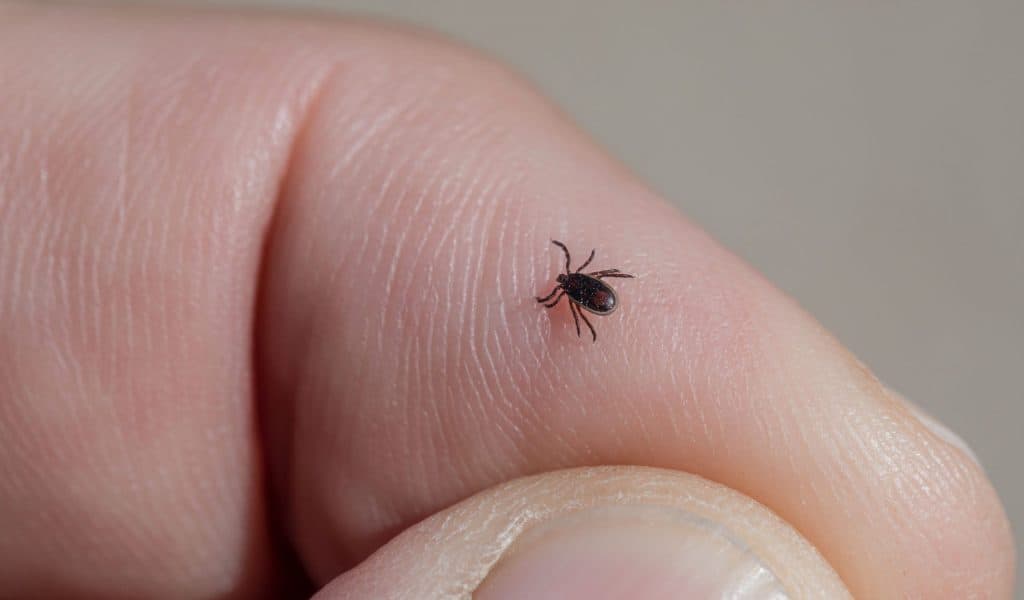
As the warm weather beckons us outdoors, it’s easy to forget about the tiny, stealthy creatures that may be lurking in tall grass or wooded areas. Ticks, small arachnids related to spiders, can pose significant health risks to both humans and pets. Understanding these risks and knowing how to protect yourself and your family can ensure that your outdoor adventures remain safe and enjoyable. If required, it will be necessary to hire Pest Control Services in Glen Ellyn to protect your family and pests from tick infestation.
Ticks and Their Habitats
Ticks are found in diverse environments, but they thrive particularly well in moist and wooded areas. These creatures are adept at lurking in leaf litter, tall grasses, and shrubs, waiting for a host to brush by. While many associate ticks with rural environments, they can also be found in suburban areas, parks, and even gardens.
Health Risks Associated with Tick Bites
The primary concern with ticks is their ability to transmit diseases. When a tick bites, it can transfer pathogens from its saliva into the host’s bloodstream. Among the most well-known tick-borne illnesses is Lyme disease, caused by the bacterium Borrelia burgdorferi. Symptoms of Lyme disease often start with a bullseye-shaped rash and flu-like symptoms, but if left untreated, it can lead to more severe health issues such as joint pain and neurological problems.
Ticks can also transmit other illnesses, including Anaplasmosis, Ehrlichiosis, and Rocky Mountain spotted fever. Each of these diseases has its own set of symptoms and potential complications, making it crucial to be vigilant about tick bites and seek medical attention if you experience illness following a bite.
Preventive Measures for Ticks
Protecting yourself and your family from ticks involves a combination of personal protection, environmental management, and awareness. Here are some practical tips to help keep ticks at bay:
- Dress Appropriately: When venturing into areas where ticks are common, wear long sleeves and pants. Tucking pants into socks and shirts into pants can reduce skin exposure. Light-colored clothing can also help you spot ticks more easily.
- Use Tick Repellents: Apply insect repellent containing DEET, picaridin, or IR3535 on exposed skin and permethrin on clothing. These substances are effective in deterring ticks and other biting insects.
- Perform Regular Tick Checks: After spending time outdoors, thoroughly check your body, clothing, and gear for ticks. Pay special attention to hidden areas like the armpits, behind the knees, and the scalp.
- Manage Your Environment: Keep your yard tidy by mowing the lawn regularly, removing leaf litter, and creating a barrier of wood chips or gravel between your lawn and wooded areas. This reduces the likelihood of ticks inhabiting your immediate surroundings.
What to Do If You Find a Tick?
Despite your best efforts, you may still find a tick on your body. Prompt and proper removal is crucial to minimize the risk of disease transmission. Here’s how to do it safely:
- Use Fine-Tipped Tweezers: Grasp the tick as close to the skin’s surface as possible. Avoid squeezing the tick’s body, as this can increase the risk of disease transmission.
- Pull Steadily Upwards: Apply steady, even pressure without twisting or jerking, which can cause the mouthparts to break off and remain in the skin.
- Clean the Area: After removal, clean the bite area and your hands with rubbing alcohol, an iodine scrub, or soap and water.
- Dispose of the Tick: Submerge the tick in alcohol, place it in a sealed container, or flush it down the toilet. However, avoid crushing it with your fingers.
- Monitor for Symptoms: Keep an eye on the bite area and your health for a few weeks. If you notice any symptoms of a tick-borne illness, seek medical attention promptly.
Conclusion
Ticks are an undeniable part of the natural landscape, but with knowledge and vigilance, you can significantly reduce their impact on your health and well-being. By understanding where ticks are likely to be found, taking steps to protect yourself and your family, and knowing how to respond if bitten, you can enjoy the great outdoors with peace of mind.






More Stories
Your DIY Kitchen Remodel Is Ticking: What to Ask (and What to Know) at Cabinet Exhibit Spaces
Discover Your Dream Home: Houses for Sale in the Charming Old Metairie Neighborhood
How to Integrate Smart Plugs with Voice Assistants for Hands-Free Control